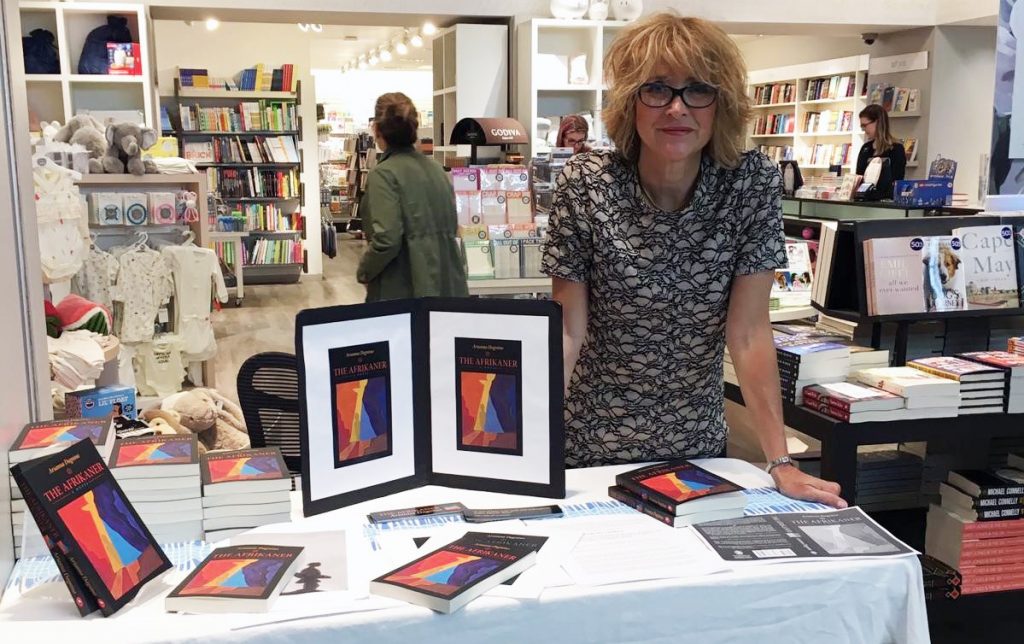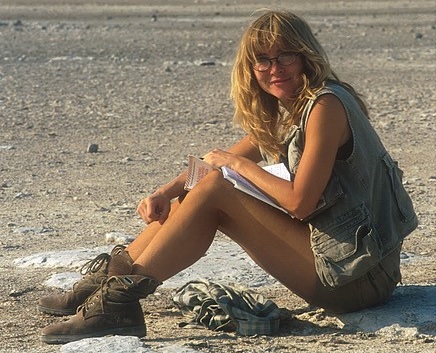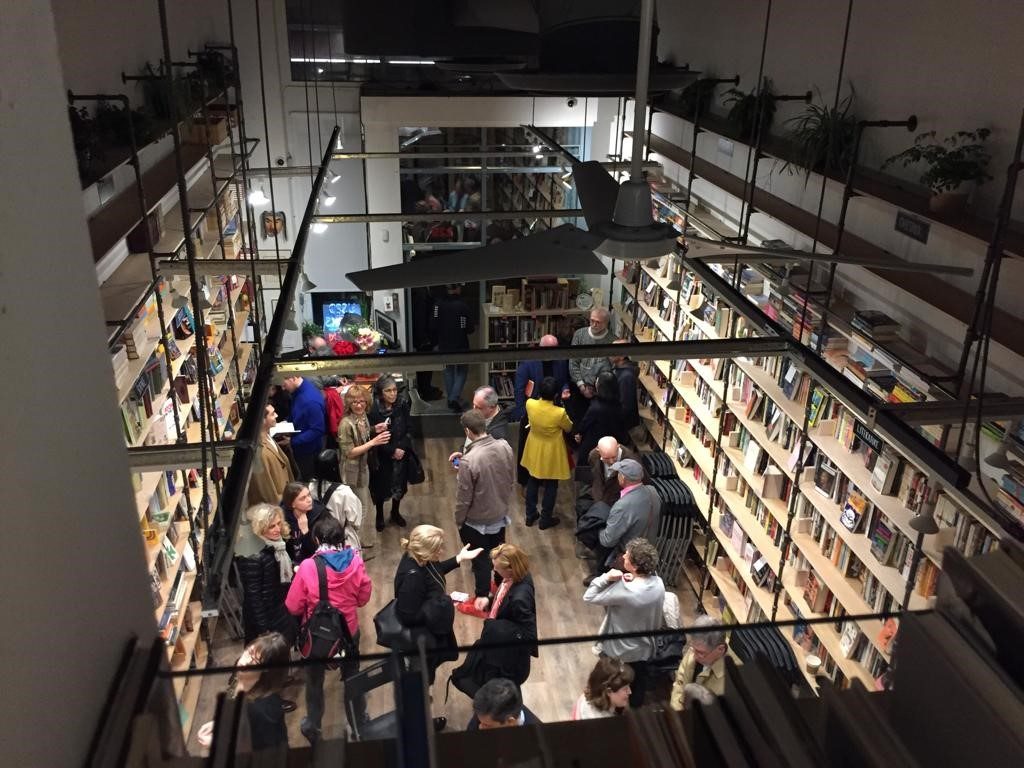Dr. Arianna Dagnino, Sessional Lecturer of Italian Studies at UBC, speaks about colonial history, collective guilt, reconciliation and transcultural issues in her latest fiction novel “The Afrikaner.”


Dr. Arianna Dagnino (author) with copies of The Afrikaner during the book tour.
Tell us about The Afrikaner.
The Afrikaner is a South African odyssey set in the year 1996 during the critical transitionary period between the apartheid to the first democratically elected Black government. Its main character, a young woman named Zoe du Plessis, is a paleontologist of Afrikaner descent. Through Zoe’s story and the way she confronts her Afrikaner heritage and sense of “group guilt”, the book talks about South Africa as a whole — with its Black and White communities, and all that stands in between.
Confronting her family’s secret rooted in the colonial history of the country, Zoe embarks on a scientific expedition to the hot plains of the Kalahari Desert. It is the beginning of an inner journey that will lead her to meaningful encounters with a Bushmen tribe, a troubled writer, a former fighter in the Border War, and the secret diaries of her female ancestors.
What themes do you seek to address through the novel?
The Afrikaner is a multi-layered book. At its most basic level, it’s an on-the-road adventure story set between South Africa and Namibia. It can also be read as the struggle of a female scientist to find her dignity in a highly patriarchal society undergoing a dramatic transition.
On a deeper level, The Afrikaner confronts the social, cultural and political complexities and tensions of a country with 11 tribes and 11 official languages, torn between a past rooted in violence, oppression and segregation, and a future still to be invented.
Zoe’s struggle is also one between science and psychology; between the reality of facts (the search for the hard proofs, the tangible data represented by fossils) and the unfathomability of the unconscious; between modern technology and the wisdom of the ancestors; between the stark light of the desert and the darkness of an underground cave. Apparently, psychology wins, as reality shows to be no less unfathomable and ungraspable than the workings of the mind.
What inspired you to write the novel?


Dr. Arianna Dagnino in the Kalahari Desert, Namibia (1998). Photo credit: Stefano Gulmanelli
The novel was inspired by the four years (1996-2000) I spent in newly post-apartheid South Africa, while working as a foreign correspondent for the Italian press. Those years witnessed the delicate and painful process of truth-searching and reconciliation promoted by Nelson Mandela and Desmond Tutu.
In my capacity as a reporter during that period, I was able to interview people from all walks of life across the social, cultural and political spectrum of South Africa. Intellectually, it was the most humbling experience. I tried to transpose what I learned into fiction, putting on the hat of a storyteller instead of that of a social scientist and cultural analyst.
Why did you choose to convey your ideas through creative writing?
In retrospect, what I have been trying to do with this book is to restore and inspire the feeling of awe.
— for what life is, for Africa, for nature, for the human and beyond human, for the anguish of the self, but also for the interconnectedness of the self with others and with the cosmos (what indigenous South Africans call the spirit of ubuntu: “I am because we are”).
Rediscovering the sacred in this interwovenness can be an answer to suffering and the root of profound joy. In this way, grief can become the first step towards redemption – both at an individual and collective level. I thought it would be easier to express all of this through a creative literary work rather than through a peer-reviewed article or an academic essay.


Book launch of “The Afrikaner” at Massy Books, Vancouver (2019).
How have your areas of expertise shaped this novel?
My areas of expertise are Transcultural Studies and Translation Studies. More or less subliminally, both of them inform my novel in various, although different, ways.
In my academic book Transcultural Writers and Novels in the Age of Global Mobility (Purdue University Press, West Lafayette, 2015), I provide a set of parameters to identify and analyze transcultural novels. In retrospect, I now realize that The Afrikaner may fit within this loose category of literary works affected by patterns of transnational and cross-cultural mobility.
In my SSHRC post-doctoral research project in the area of Translation Studies, I have worked on bilingual fiction writers who self-translate their novels from Romance languages into English and vice versa. My work in this area has provided me with great opportunities for self-reflection during and after the process of self-translating my own novel. In fact, The Afrikaner was initially published in Italian with the title Fossili (Fazi Editore, Rome, 2010); in my case, the long process of self-translation resulted in a thorough re-writing of the whole book.
What was the writing process like?
My training as a journalist helped me to not fear the white page. I can write quickly and am extremely focused when I do so. That’s the easy part. Then comes the long, painstaking work of editing and rewriting. I agree with colleagues who describe writing as a seemingly never-ending process of editing oneself. It is true that, most often than not, the most successful sentences come to you when you are in a state of flow, as if in a trance. However, a whole novel is born out of a more rationalized process through which pure inspiration finds itself reined in by engineer-like structural vision and precision.
It was enjoyable, challenging, exciting and nerve-racking all at once, during different times of the creative and editing process!
———
Learn more about “The Afrikaner” and Dr. Arianna Dagnino. For futher media coverage, check out the reviews by Alan Twigg, Ian Thomas Shaw and Joseph Pivato, or the interview by Dana Gee in the Vancouver Sun.


